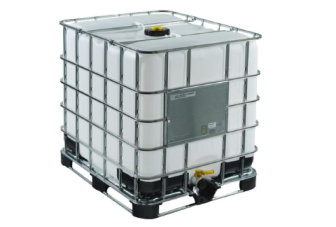+7 (4862) 74-06-08
Karachevskoye Shosse 79, Oryol
+7 (920) 823-23-00
+7 (4862) 74-06-08
Karachevskoye Shosse 79, Oryol
+7 (920) 823-23-00






Home Poultry and Livestock

This is an environmentally friendly veterinary drug of natural plant origin, containing salts of humic acids, hematomelanic and fulvic acids, amino acids, peptides, polysaccharides, trace and macroelements (in particular, calcium and phosphorus), enzymes, proteins, vitamins, that are necessary for animals and birds. The use of the drug stimulates the formation, development and maturation of blood cells – leukocytes, erythrocytes, platelets, the synthesis of blood proteins and the use of glucose by body tissues and, as a result, a significant increase in daily milk yield in cows, weight gain in calves, piglets and lambs.
The preparation is a dark brown liquid made of lowland peat using a unique method, the main elements of the production line are dispersers and steam reactors. The original pulp passes through the reactor, a colloid solution is formed from peat with simultaneous processes of extraction, solution, disintegration of cell structures, destruction of cellulose, followed by recombination at the molecular level. The process occurs at a low temperature and is accelerated by dispersion. The unique technological approach allows biologically active natural ingredients, trace elements and macronutrients to be saved and accumulated and subsequently stabilize due to a negatively charged humus acid. The produced preparation contains more than 30 elements of mineral and organic substances, including all essential trace elements, 20 amino acids, and also vitamins. The preparation was examined and tested on Russian poultry farms.
2.1. It is harmless to all living organisms;
2.2. It does not cause allergies;
2.3. It is not carcinogenic;
2.4. It is not teratogenic, i.e. it does not affect the embryonic development.
2.5. It does not cause morphological abnormalities and malformations in animals.
2.6. It is not embryo toxic - its use does not provoke intrauterine death, reduction of the mass and size of embryos.
2.7. It contributes to an increase in livestock safety, improves the physiological condition, performance and product quality.
2.8. It contributes to the enhancement of vitality in animals.
2.9. It stimulates healthy growth and immunity of animals.
2.10. It accelerates the process of food fermentation due to the development of beneficial microflora in the gastrointestinal tract.
2.11. It has a preventive and therapeutic effect on the organism of animals.
2.12. It is an antibacterial and antiviral defense.
2.13. It acts as a catalyst and improves the metabolism of proteins and carbohydrates of bacteria.
2.14. It significantly weakens or completely removes toxic effects of infectious bacteria toxins on physiological processes in mucosal membrane cells.
2.15. It has an anti-inflammatory effect.
2.16. It improves the feed efficiency.
3.1. The use of the EKOR-K feed additive allows:
3.2. Cattle
3.3. To increase the survival rate up to 98%;
3.4. To reduce the amount of feed for cattle by 40% after 6 weeks from the start of the use of the preparation;
3.5. To increase the milk yield by 18-36%;
3.6. To increase the milk fat content by 20-30%;
3.7. To reduce the dose of veterinary drugs used to treat and prevent diseases by 20%;
3.8. To increase the weight gain by 30-40%;
3.9. To improve the quality of milk products.
3.10 Poultry
3.11. To increase the survival rate up to 98.5%;
3.12. To increase the live weight during the growing period by 100 grams;
3.13. To reduce feed the conversion by 10% or more.
3.14. To reduce the dose of veterinary drugs used to treat and prevent diseases in birds by 20% or more;
3.15. To reduce the maturity period by 2-5 days.
3.16. To increase the egg production by 7% or more.
3.17. To improve quality indicators of poultry meat and eggs.
The feed additive is added to the feed by finish spraying at the rate of 6-8 liters per 1 ton of feed and to drinking water using current mixing technologies at the rate of 4-5 liters per 1000 liters of water.
In addition, the drug is sprayed twice a day in the presence of birds, as such treatment contributes to a drastic reduction in air contamination by pathogenic microflora. The recommended dose is 3-4 liters of the preparation per 1 ton of water.